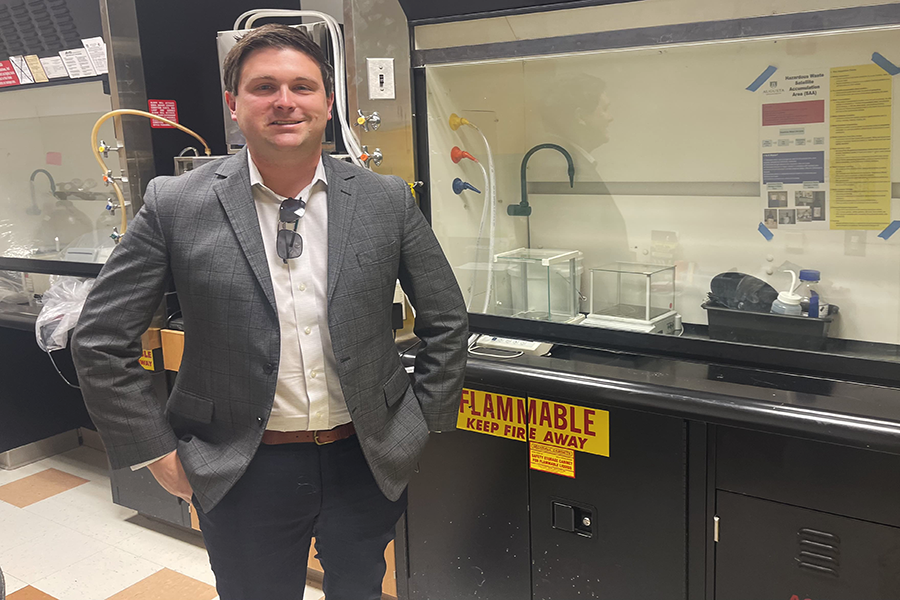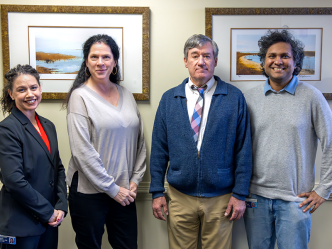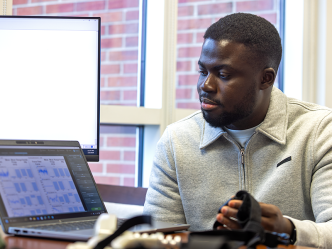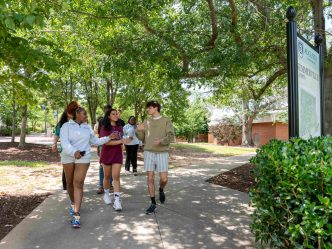Keith Hearon, PhD, is bringing home the gold when it comes to researcher and inventor accolades. He was recently elected into the 2024 Class of Fellows for the National Academy of Inventors – a massive accomplishment and professional distinction.
He was shocked when he got the news.
“It’s a great honor,” Hearon said. “I’m really grateful for both the nominators, Professor Bob Langer from MIT and Professor Mark Grinstaff from Boston University that nominated me for this award. I think having an amazing group of mentors that were part of my PhD training, my postdoctoral training and now business partners that are also excellent academic mentors, have heavily influenced me and created a lot of opportunities.”
How it started
An Augusta native, Hearon attended Westminster Schools of Augusta K-12, then received his bachelor’s degree in materials science and engineering from Georgia Tech and his PhD in biomedical engineering from Texas A&M University. He did his postdoctoral work at MIT.
As one of 170 inventors from around the world chosen as a 2024 NAI Fellow, Hearon has made his mark on the biomedical engineering field. His class boasts more than 5,000 U.S. patents combined, and about 30 are his.
His passion for problem-solving sparked when he invented a shape-changing plastic for medical use during his years as an undergrad.
That invention led him to create more materials and products, and he eventually co-founded and became the chief executive officer of three startup companies: Poly6 Technologies (acquired 2019), Virex Health (acquired 2022) and Nuceptive Labs (venture-backed 2023).
He’s had a wildly successful career, and he’s only 37.
“It’s fun solving problems through inventions and materials; chemistry is kind of what gets my mind moving,” Hearon said. “And then working with people that enjoy solving problems. I couldn’t really imagine doing anything else, so nothing that I do feels like work.”
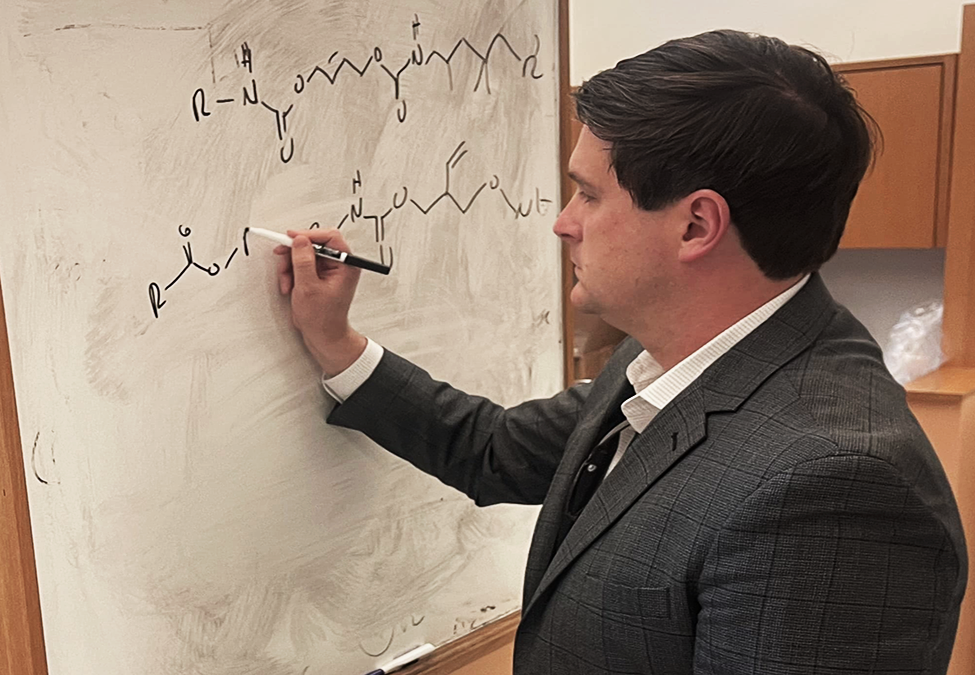
Inventions and The Incubator
Poly6 Technologies focused on aerospace 3D printing materials, and Virex Health focused on rapid medical diagnostics. Both have since been acquired, and Nuceptive Labs is Hearon’s current project.
He’s developing a super-sticky medical adhesive product that doesn’t hurt to pull off skin, and he’s doing it at Augusta University’s Life Sciences Business Development Center, also known as The Incubator.
“I think this is one of the best startup incubators in the world,” Hearon said. “I’ve been a part of a number of universities, and what I really like about this one is its capacity and its resources are highly conducive to a limited number of startup companies achieving very big and impactful things in a reasonable time frame.”
The Incubator, located in the Interdisciplinary Research Center on AU’s Health Sciences Campus, is a 14,000-square-foot facility complete with wet labs, offices, shared equipment and more – allowing startup companies to develop their products at a more affordable rate.
“We have opted to keep our pricing lower because we’re in a smaller market, and we’re erring on the side of having the space full as much as possible,” said Chris McKinney, DA, associate vice president for innovation commercialization at AU.
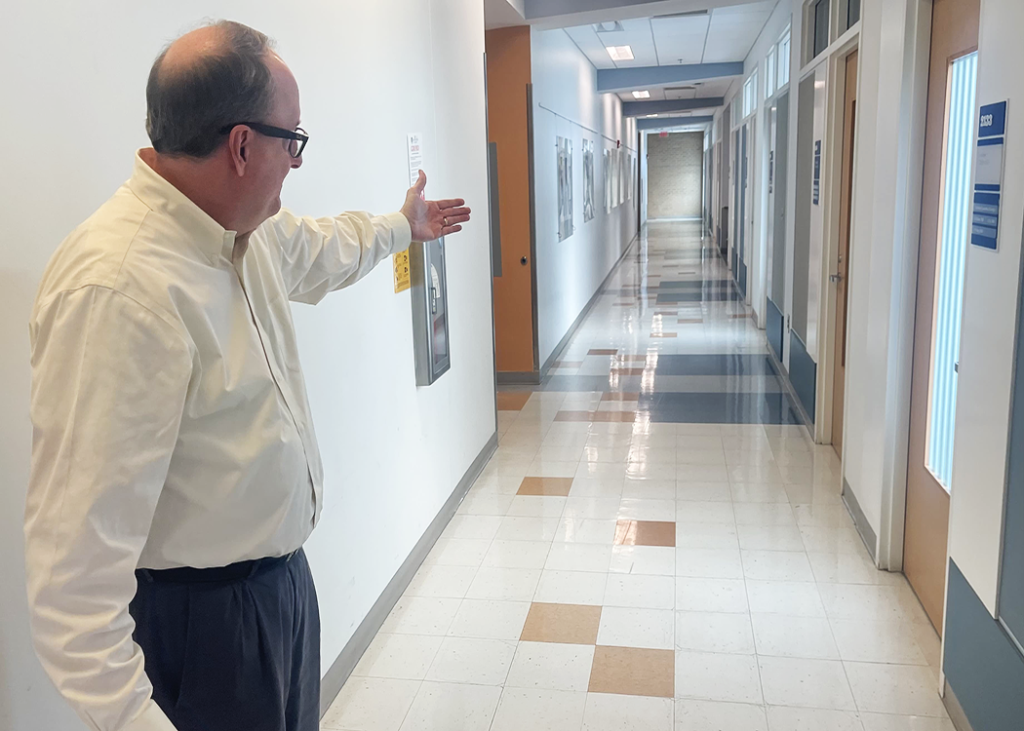
He said the 20-year-old facility is somewhat rare.
“A lot of university wet lab incubators are not on campus; they’re sometimes a distance away. I’ve been to several schools where they were 10 miles away. Ours is kind of unique because we sit right in the middle of the research enterprise among other research labs,” McKinney said.
This proximity helps with faculty recruitment and retention.
“Some faculty wanted to do this kind of startup in a wet lab environment. If they couldn’t have done it here, they might have gone to a different university,” McKinney said.
Hearon conducting his experiments and research in an Augusta University lab benefits the community in multiple ways.
“I think it’s a great match because you’ve got someone who’s done this before and is going to keep doing it. We not only love hosting him here because he’s just a terrific person but also because he’s a great example for our faculty and others of what you can do,” McKinney said. “And the fact he’s here on campus just like the other companies means you’re interacting with people, other faculty, other people at AU. So, it’s just that kind of intermingling that becomes important, as well.”
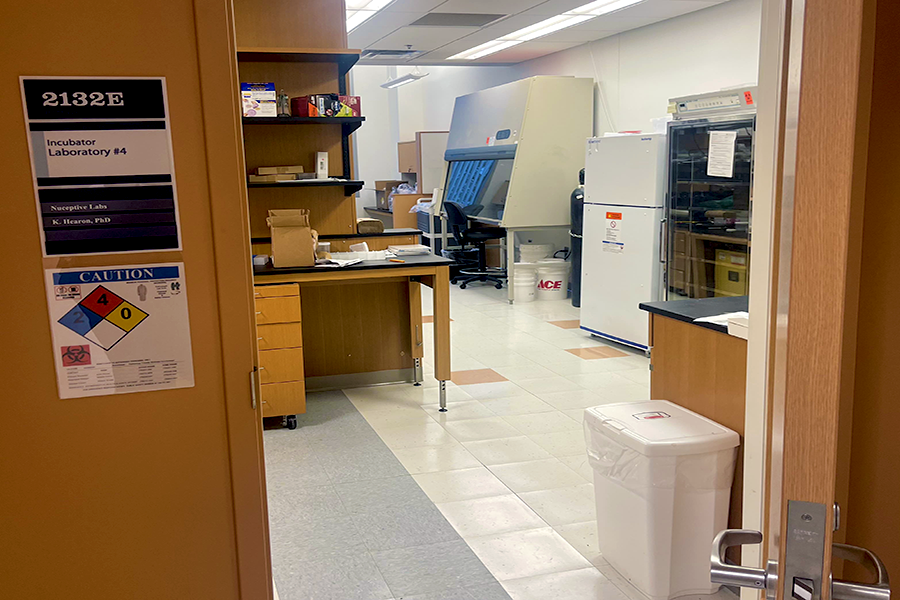
What’s next
For Hearon’s mentors and NAI nominators, this achievement is a full-circle moment.
“I’m very proud of what a terrific entrepreneur and inventor Keith has become, and his work as an inventor across three different materials startup companies highly distinguishes him from his peers,” said Bob Langer, ScD, Hearon’s postdoctoral adviser at MIT and co-founder of Moderna.
“Keith is a great business partner and knows polymer networks very well,” added Mark Grinstaff, PhD, a biomedical engineering instructor and Hearon’s colleague. “Keith is here to stay, and it’s been a tremendous experience to work with him on a number of companies and scientific projects.”
As for Hearon’s next steps, he’s working on getting investors to put $7 million more into Nuceptive Labs to complete the development phase.
He’s driven by the desire to positively impact the world through his inventions, and he doesn’t plan on stopping any time soon.
“It’s important to have a societal impact motivation, and nothing that I’ve worked on has been lacking in potential for societal impact,” he said. “And so every decision I make related to a research project or a startup company is driven by solving a problem in society that could help people in an economically sustainable manner.”
Discoveries at Augusta University are changing and improving the lives of people in Georgia and beyond. Your partnership and support are invaluable as we work to expand our impact.
 Augusta University
Augusta University
